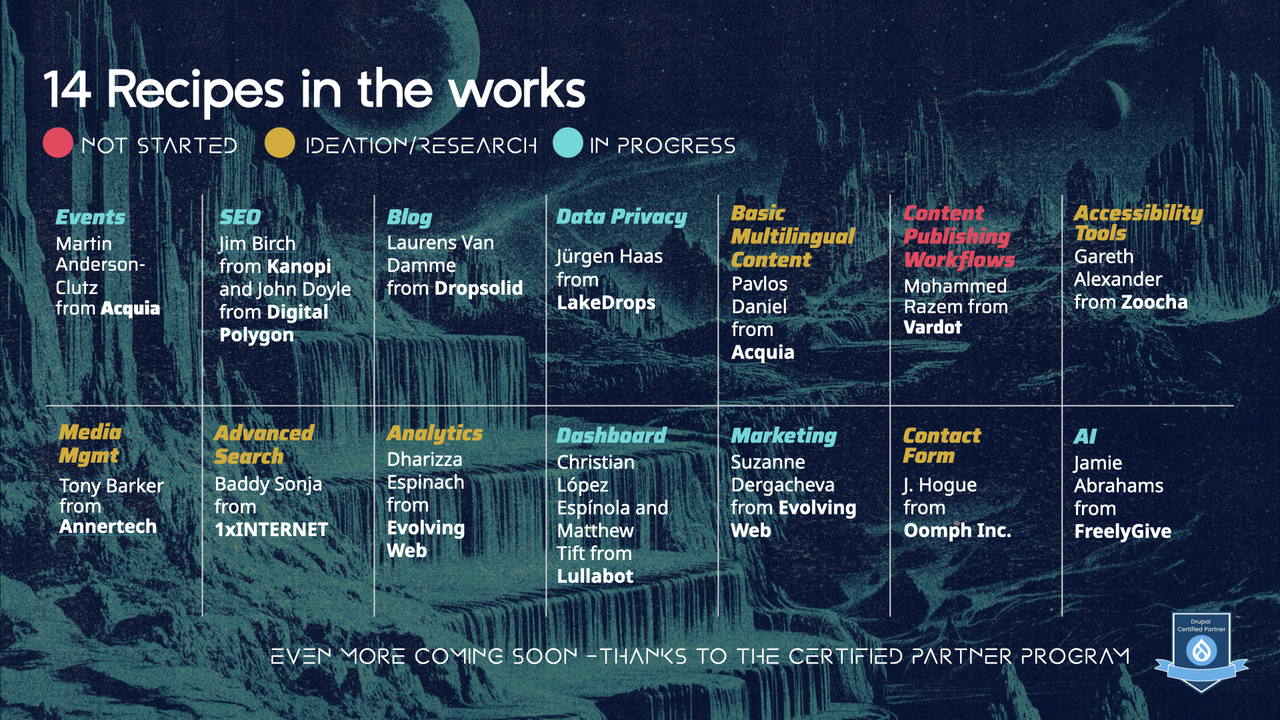DISCOURS COMMERCIAL APP CANAL+ VDEF
Author: Source Read more
Author: Source Read more
Author: Source Read more

Recently, a public dispute has emerged between WordPress co-founder Matt Mullenweg and hosting company WP Engine. Matt has accused WP Engine of misleading users through its branding and profiting from WordPress without adequately contributing back to the project.
As the Founder and Project Lead of Drupal, another major open source Content Management System (CMS), I hesitated to weigh in on this debate, as this could be perceived as opportunistic. In the end, I decided to share my perspective because this conflict affects the broader open source community.
I’ve known Matt Mullenweg since the early days, and we’ve grown both our open source projects and companies alongside each other. With our shared interests and backgrounds, I consider Matt a good friend and can relate uniquely to him. Equally valuable to me are my relationships with WP Engine’s leadership, including CEO Heather Brunner and Founder Jason Cohen, both of whom I’ve met several times. I have deep admiration for what they’ve achieved with WP Engine.
Although this post was prompted by the controversy between Automattic and WP Engine, it is not about them. I don’t have insight into their respective contributions to WordPress, and I’m not here to judge. I’ve made an effort to keep this post as neutral as possible.
Instead, this post is about two key challenges that many open source projects face:
These issues could discourage entrepreneurs from starting open source businesses, which could harm the future of open source. My goal is to spark a constructive dialogue on creating a more equitable and sustainable open source ecosystem. By solving these challenges, we can build a stronger future for open source.
This post explores the “Maker-Taker problem” in open source, using Drupal’s contribution credit system as a model for fairly incentivizing and recognizing contributors. It suggests how WordPress and other open source projects could benefit from adopting a similar system. While this is unsolicited advice, I believe this approach could help the WordPress community heal, rebuild trust, and advance open source productively for everyone.
At the heart of this issue is the Maker-Taker problem, where creators of open source software (“Makers”) see their work being used by others, often service providers, who profit from it without contributing back in a meaningful or fair way (“Takers”).
Five years ago, I wrote a blog post called Balancing Makers and Takers to scale and sustain Open Source, where I defined these concepts:
The difference between Makers and Takers is not always 100% clear, but as a rule of thumb, Makers directly invest in growing both their business and the open source project. Takers are solely focused on growing their business and let others take care of the open source project they rely on.
In that post, I also explain how Takers can harm open source projects. By not contributing back meaningfully, Takers gain an unfair advantage over Makers who support the open source project. This can discourage Makers from keeping their level of contribution up, as they need to divert resources to stay competitive, which can ultimately hurt the health and growth of the project:
Takers harm open source projects. An aggressive Taker can induce Makers to behave in a more selfish manner and reduce or stop their contributions to open source altogether. Takers can turn Makers into Takers.
Solving the Maker-Taker challenge is one of the biggest remaining hurdles in open source. Successfully addressing this could lead to the creation of tens of thousands of new open source businesses while also improving the sustainability, growth, and competitiveness of open source – making a positive impact on the world.
In Drupal, we’ve adopted a positive approach to encourage organizations to become Makers rather than relying on punitive measures. Our approach stems from a key insight, also explained in my Makers and Takers blog post: customers are a “common good” for an open source project, not a “public good”.
Since a customer can choose only one service provider, that choice directly impacts the health of the open source project. When a customer selects a Maker, part of their revenue is reinvested into the project. However, if they choose a Taker, the project sees little to no benefit. This means that open source projects grow faster when commercial work flows to Makers and away from Takers.
For this reason, it’s crucial for an open source community to:
To address these needs and solve the Maker-Taker problem in Drupal, I proposed a contribution credit system 10 years ago. The concept was straightforward: incentivize organizations to contribute to Drupal by giving them tangible recognition for their efforts.
We’ve since implemented this system in partnership with the Drupal Association, our non-profit organization. The Drupal Association transparently tracks contributions from both individuals and organizations. Each contribution earns credits, and the more you contribute, the more visibility you gain on Drupal.org (visited by millions monthly) and at events like DrupalCon (attended by thousands). You can earn credits by contributing code, submitting case studies, organizing events, writing documentation, financially supporting the Drupal Association, and more.

Drupal’s credit system is unique and groundbreaking within the Open Source community. The Drupal contribution credit system serves two key purposes: it helps us identify who our Makers and Takers are, and it allows us to guide end users towards doing business with our Makers.
Here is how we accomplish this:

To make sure the contribution credit system is fair, it benefits from the oversight from an independent, neutral party.
In the Drupal ecosystem, the Drupal Association fulfills this crucial role. The Drupal Association operates independently, free from control by any single company within the Drupal ecosystem. Some of the Drupal Association’s responsibilities include:
It’s important to note that while I serve on the Drupal Association’s Board, I am just one of 12 members and have not held the Chair position for several years. My company, Acquia, receives no preferential treatment in the credit system; the visibility of any organization, including Acquia, is solely determined by its contributions over the preceding twelve months. This structure ensures fairness and encourages active participation from all members of the Drupal community.
Drupal’s credit system certainly isn’t perfect. It is hard to accurately track and fairly value diverse contributions like code, documentation, mentorship, marketing, event organization, etc. Some organizations have tried to game the system, while others question whether the cost-benefit is worthwhile.
As a result, Drupal’s credit system has evolved significantly since I first proposed it ten years ago. The Drupal Association continually works to improve the system, aiming for a credit structure that genuinely drives positive behavior.
[newsletter-blog]
WordPress has already taken steps to address the Maker-Taker challenge through initiatives like the Five for the Future program, which encourages organizations to contribute 5% of their resources to WordPress development.
Building on this foundation, I believe WordPress could benefit from adopting a contribution credit system similar to Drupal’s. This system would likely require the following steps to be taken:
This approach addresses both key challenges highlighted in the introduction: it balances contributions by incentivizing major involvement, and it creates an environment where open source businesses of all sizes can compete fairly based on their contributions to the community.
Addressing the Maker-Taker challenge is essential for the long-term sustainability of open source projects. Drupal’s approach may provide a constructive solution not just for WordPress, but for other communities facing similar issues.
By transparently rewarding contributions and fostering collaboration, we can build healthier open source ecosystems. A credit system can help make open source more sustainable and fair, driving growth, competitiveness, and potentially creating thousands of new open source businesses.
As Drupal continues to improve its credit system, we understand that no solution is perfect. We’re eager to learn from the successes and challenges of other open source projects and are open to ideas and collaboration.
One of the ticket machines was broken and a sign said she needed to scan a QR code in order to pay on her phone.
Angela says she tried downloading the app but became suspicious it was a scam so deleted it from her phone and left the car park on October 31.
A week later she received a £100 fine from Parking Charge Collections Ltd (PCC), saying she had exceeded the five-minute limit by 65 seconds.
Author: Source Read more
Author: Source Read more